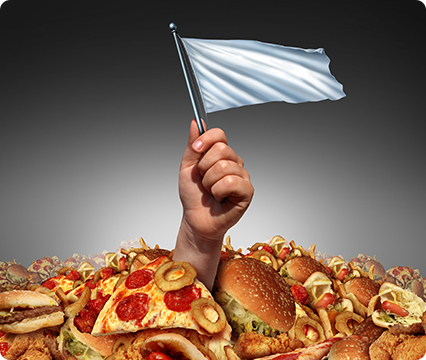Inhibition of food craving is a metabolically active process in the brain in obese men
This study by Wang et al. (2020) aimed to investigate how obesity affects the brain’s ability to control food cravings. The authors hypothesized that obese individuals would have difficulty suppressing cravings compared to non-obese individuals. Sixteen obese men (average age 32 ± 8.7 years, average BMI = 38.6 ± 7.2) were compared to 11 age-matched non-obese men (average BMI 24.2 ± 2.5) using PET (positron emission tomography) and FDG (fludeoxyglucose-18) scans. Brain glucose metabolism was measured under different conditions: when participants were not exposed to food, when they were exposed to food without inhibition (NI), and when they were exposed to food while attempting to inhibit their cravings (AI). Each condition was tested on separate days. Participants were shown their favorite foods before and after receiving FDG injections, with instructions to try to suppress their desire for the food during the AI condition. Self-reports of hunger and food desire were collected. Food exposure increased glucose metabolism in specific brain regions involved in decision-making and reward processing for both obese and non-obese groups. When attempting to suppress cravings, both groups showed decreased metabolism in areas associated with craving and reward processing. However, obese men exhibited higher metabolism in certain brain regions related to self-regulation and emotional reward (pgACC/caudate) during the AI condition compared to non-obese men. Additionally, changes in craving levels correlated with changes in metabolism in these regions specifically among obese men. Obese individuals demonstrated greater activation in brain regions associated with self-regulation and reward processing when attempting to suppress food cravings. This suggests that controlling cravings requires more effort for obese individuals compared to non-obese individuals, potentially contributing to difficulties in controlling eating behavior. [NPID: Obesity, inhibitory control, food craving, brain responses, cognitive inhibition, self-regulation]
Year: 2020

 Navigation
Navigation






